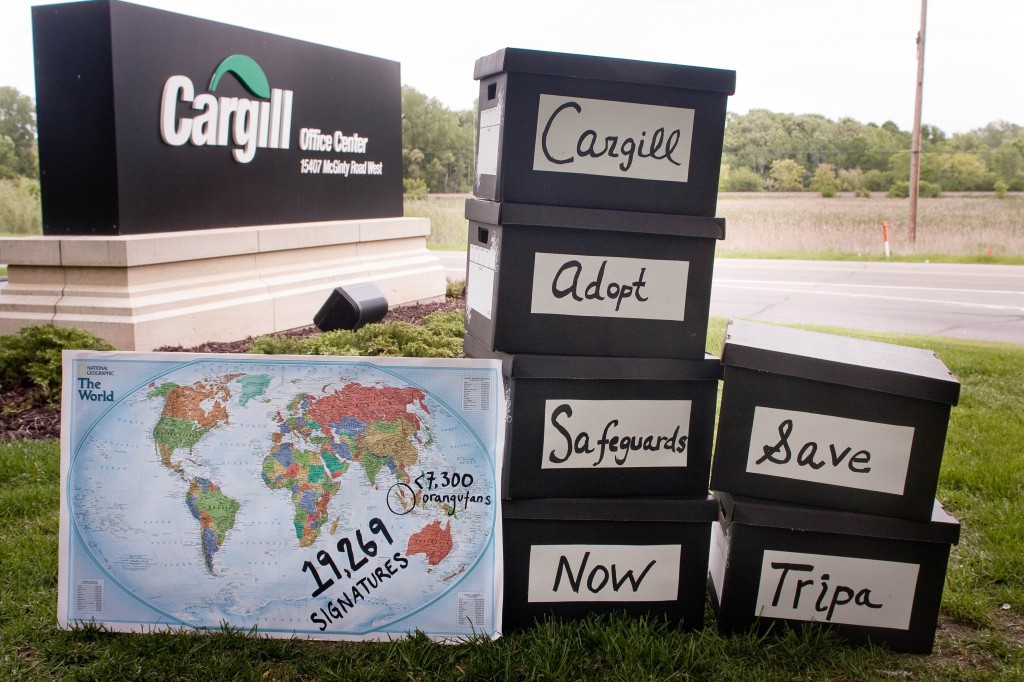The major tragedy that is still unfolding in Indonesia’s Tripa rainforest continues to threaten the survival of critically endangered Sumatran orangutans. As over 92 fires smolder, palm oil companies like Cargill are racing to deny the role they’ve played in the destruction and devastation of the Tripa forest.
We’ve gathered thousands of petitions to Cargill CEO Greg Page throughout the past couple of months, calling on him to take action now and adopt critical supply chain safeguards that would prevent Cargill from profiting off the destruction of tragedies like the one under way in Tripa.
Today a group of local Twin Cities residents and I delivered nearly 20,000 petitions to Cargill’s doorstep on behalf of orangutan and human rights advocates around the world who want Cargill to adopt safeguards on its palm oil supply chain.
Based on the IUCN’s Red List of Threatened Species, the population count for Sumatran orangutans is 7,300, however, evidence shows that the population has been severely impacted by the recent fires in Tripa. Sadly, this means that for every 3 people that signed our petition to Cargill, only 1 Sumatran Orangutan remained in the wild before the fires.
Please watch this short video message to Cargill and share it with your friends:
[youtube ZaCXYAfJwYo 500]
Music: Passacaglia by Bear McCreary
Tripa is one of the most important tropical rainforests remaining in the world today as it houses the densest remaining population of critically endangered Sumatran orangutans and many unique forest dependent communities depending on it for survival.
Our allies on the ground have informed us that as of May 9th only two fire hot spots remain. In the past few weeks, the Coalition to Save Tripa has been gathering evidence on the fires, including forest cover changes, peat depths and satellite images. The National Police of Indonesia have also conducted a field investigation and the evidence they collected is being analyzed in Jakarta right now. According to high level officials, law enforcers have already concluded that there have been legal violations; the big question now is whether the companies responsible will be held accountable.
We need to maintain an international spotlight on Tripa while this legal battle unfolds to ensure that justice is brought to the species, communities and forest at stake. The last International Day of Action to Save Tripa was a huge success; on April 26 actions took place in seven countries around the world, calling on Indonesian President SBY to publicly support enforcing Indonesian laws. Stay tuned for the next International Day of Action.